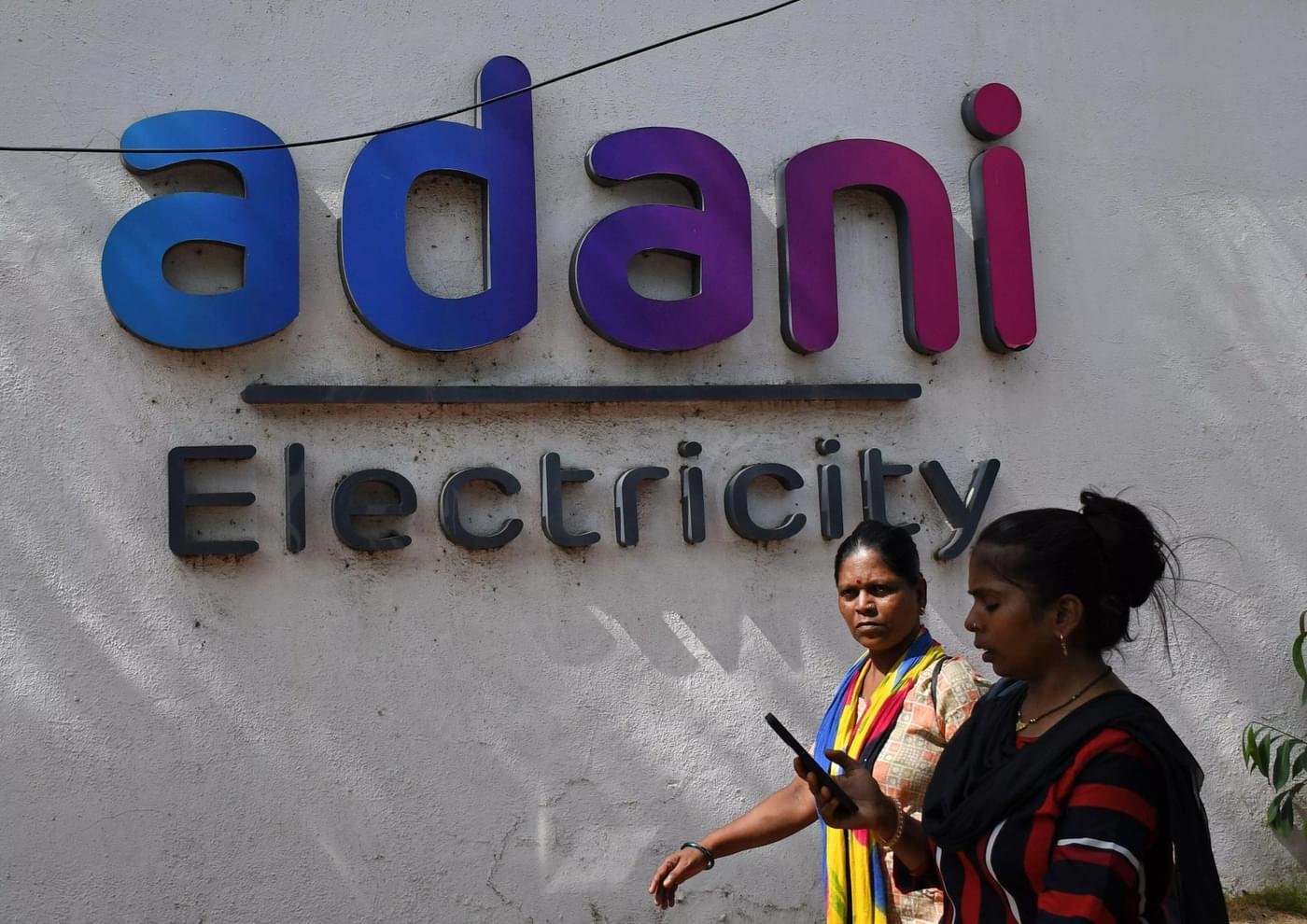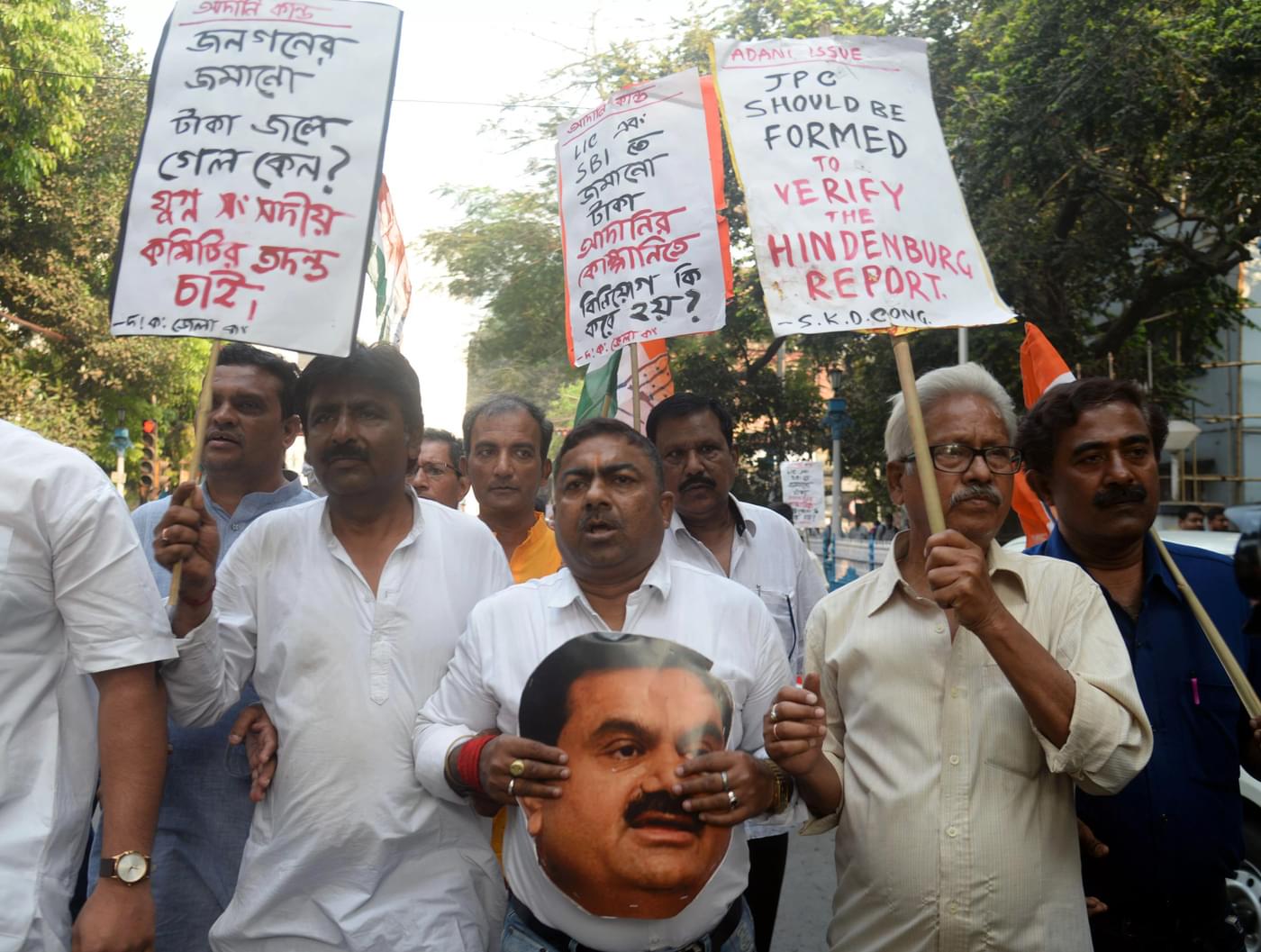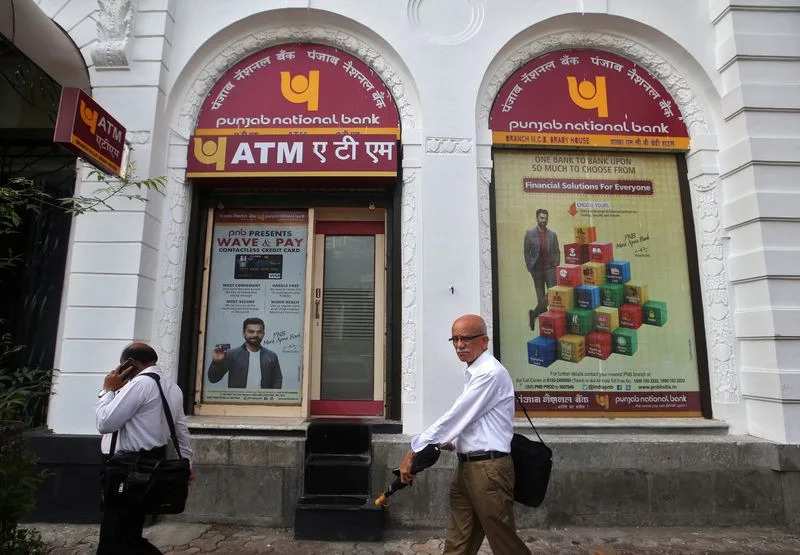CRIMINAL CAPITALI$M
Adani family partners used offshore funds to invest in Indian group's stocks, report says
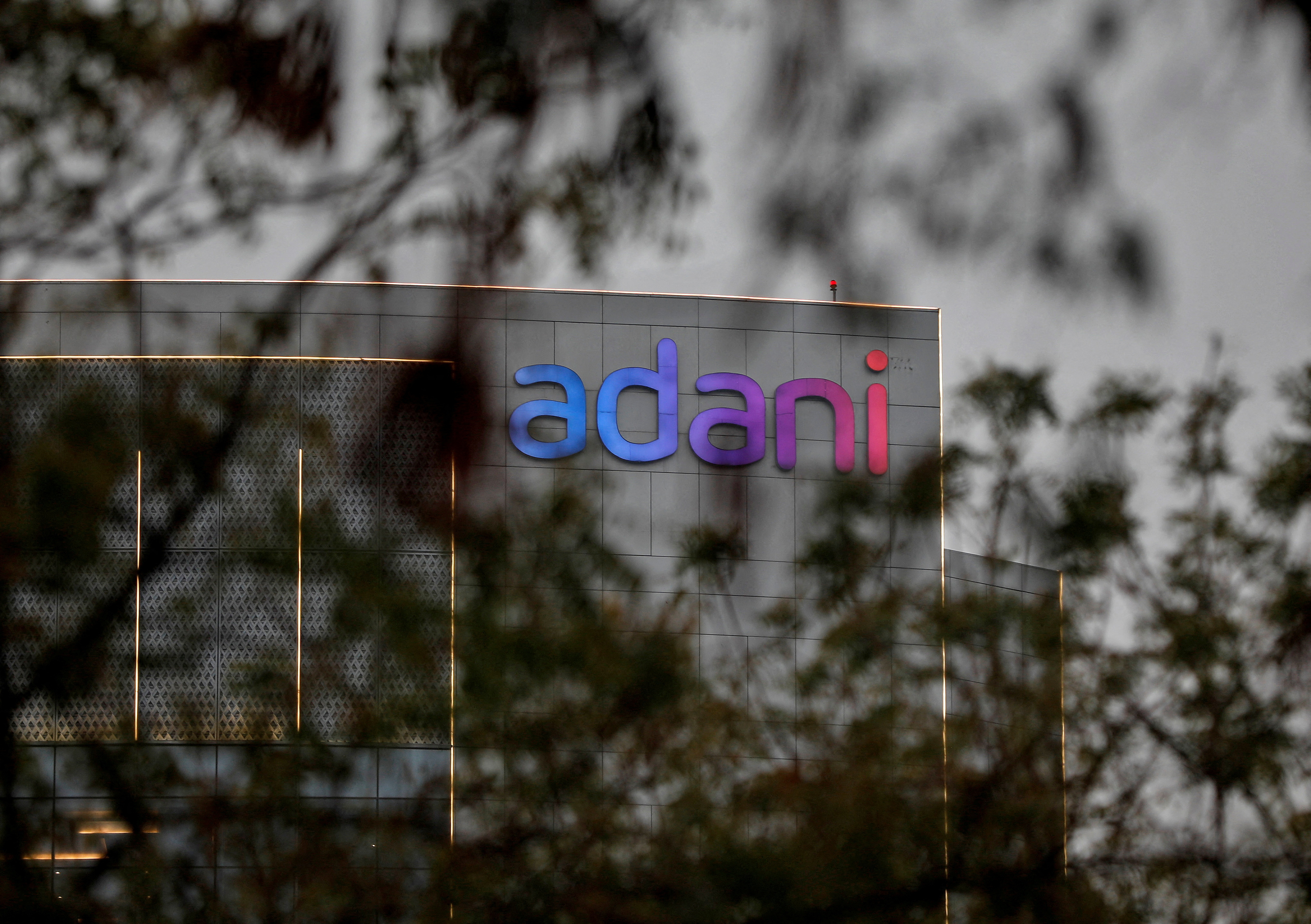
The logo of the Adani Group is seen on the facade of its Corporate House on the outskirts of Ahmedabad, India, January 27, 2023. REUTERS/Amit Dave/File Photo Acquire Licensing Rights
NEW DELHI, Aug 31 (Reuters) - Millions of dollars were invested in publicly traded Adani Group stocks through funds in Mauritius, the Organised Crime and Corruption Reporting Project (OCCRP) reported on Thursday, saying this "obscured" the involvement of alleged business partners of India's Adani family.
Citing a review of files from tax havens and internal Adani Group emails, the non-profit global network of investigative journalists said two individual investors with "longtime business ties" to the Adani family used such offshore structures to buy and sell Adani shares between 2013 and 2018.
FAMILY TIES
Between them, at the peak of their investment in June 2016, Ahli and Chang held free-floating shares of four Adani Group units - Adani Power, Adani Enterprises, Adani Ports, and Adani Energy Solutions (formerly known as Adani Transmission) - ranging from 8% to about 14% stakes in the companies through two Mauritius-based funds, the OCCRP report said.
At one point, their investment in Adani funds was worth $430 million, the report said.
Under Indian laws, every company needs to have 25% of its shares held by public shareholders to avoid price manipulation.
While OCCRP said there was no evidence Chang and Ahli's money for their investments came from the Adani family, its reporting and documents - including an agreement, corporate records and an email - showed there "is evidence" that their trading in Adani stock "was coordinated with the family."
It said that Ahli and Chang were associated with companies of the group as well as with Vinod Adani, who is a brother of Gautam Adani. Vinod Adani did not respond to a Reuters request for comment.
"The question of whether this arrangement is a violation of the law rests on whether Ahli and Chang should be considered to be acting on behalf of Adani 'promoters,' a term used in India to refer to the majority owners of a business," OCCRP said.
If so, OCCRP said, the stake of promoters in Adani holdings would exceed the 75% limit allowed for insider ownership.
Indian asset management services provider 360 One Wam (ONEW.NS), whose Mauritius arm managed the Emerging India Focus Fund and EM Resurgent Fund that were cited by OCCRP, said the funds sold their investments in Adani stocks in 2018.
'LOOP CLOSED'
Hindenburg said on platform X on Thursday that the OCCRP report closed the loop on issues it had flagged with respect to the offshore funds owning at least 13% of the public float in multiple Adani stocks through "associates of Vinod Adani".
Adani Group had called Hindenburg's claims misleading and without evidence and said it always complied with laws.
In a statement to OCCRP, Adani Group said the Mauritius funds investigated by reporters had already been named in the Hindenburg report and the "allegations are not only baseless and unsubstantiated but are rehashed from Hindenburg's allegations".
India's Supreme Court has appointed a panel to oversee a SEBI probe based on the Hindenburg report. The panel in May said the regulator had so far "drawn a blank" in investigations into the suspected violations.
Last week, SEBI said its report was nearing completion and its investigation on some offshore deals was taking time as some entities were located in tax haven jurisdictions. The regulator "shall take appropriate action based on outcome of the investigations," it said.
SEBI also said it examined one Adani group transaction for violation of minimum public float rules, an issue that the OCCRP report also flagged.
In an interview with a reporter from the Guardian, OCCRP said Chang said he knew nothing about any secret purchases of Adani stock. He asked why journalists were not interested in his other investments and said, "We are a simple business."
Meanwhile, India’s main opposition leader Rahul Gandhi repeated demands for a parliamentary probe given the latest allegations, asking Prime Minister Narendra Modi to clear "his name and categorically explain what is going on".
Indian opposition parties allege that Gautam Adani has benefited from what they say are his close ties with Modi for over two decades, a charge rejected by both Modi and Adani.
Reporting by Aditya Kalra, Krishn Kaushik, Scott Murdoch, Sethuraman NR and Jayshree P Upadhyay; Editing by Lisa Shumaker, Muralikumar Anantharaman, Dhanya Skariachan, Raju Gopalakrishnan and Alexander Smith
Documents Provide Fresh Insight Into
Allegations of Stock Manipulation That
Rocked India’s Powerful Adani Group
Credit: James O’Brien/OCCRP
by Anand Mangnale, Ravi Nair, and NBR Arcadio
31 August 2023
Two men who secretly invested in the massive conglomerate turn out to have close ties to its majority owners, the Adani family, raising questions about violations of Indian law.
Key FindingsNeither India’s stock market regulator nor a high-level expert committee has been able to prove what many suspect: that some foreign owners of publicly listed Adani Group stock are, in fact, fronts for its majority owners.
Fresh allegations aired this January by American short sellers rocked the conglomerate, but offshore secrecy has made tracing the transactions difficult. Official investigators “hit a wall,” in the words of one report.
Now, new documents obtained by reporters reveal two men who spent years trading hundreds of millions of dollars’ worth of Adani Group stock: Nasser Ali Shaban Ahli and Chang Chung-Ling.
Both have close ties to the Adani family, including appearing as directors and shareholders in affiliated companies.
Records show that the investment funds they used to trade in Adani Group stock received instructions from a company controlled by a senior member of the Adani family.
It became one of the largest economic scandals in the history of modern India: The Adani Group, a massive conglomerate with interests in everything from airports to television stations, was accused of brazen stock manipulation.
The allegation, leveled this January by a New York-based short seller, caused Adani stock to plummet, triggered protests, and prompted an investigation by India’s Supreme Court.
But the expert committee convened by the court was unable to get to the bottom of the scandal, which has serious political implications because of the group’s widely perceived closeness to Prime Minister Narendra Modi and its central role in his plan for developing the country.
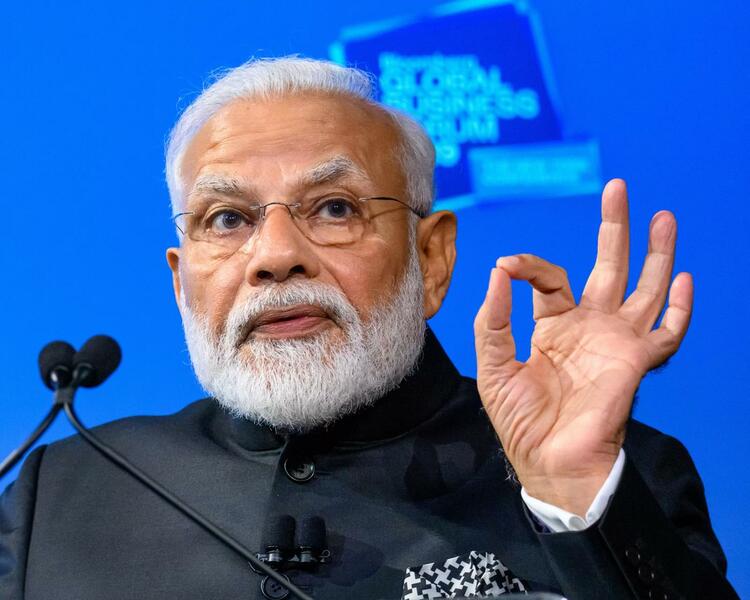
Credit: Enrique Shore/Alamy Live NewsIndian Prime Minister Narendra Modi speaks at the Bloomberg Global Business Forum 2019 at the Plaza hotel in New York City.
The essence of the allegations was that some of the Adani Group’s key “public” investors were in fact Adani insiders, a possible violation of Indian securities law. But none of the agencies contacted by the committee were able to identify those investors, since they were hidden behind secretive offshore structures.
Now, exclusive documents obtained by OCCRP and shared with The Guardian and Financial Times — including files from multiple tax havens, bank records, and internal Adani Group emails — shed light on that very matter.
These documents, which have been corroborated by people with direct knowledge of the Adani Group’s business and public records from multiple countries, show how hundreds of millions of dollars were invested in publicly traded Adani stock through opaque investment funds based in the island nation of Mauritius.
In at least two cases — representing Adani stock holdings that at one point reached $430 million — the mysterious investors turn out to have widely reported ties to the group’s majority shareholders, the Adani family.
The two men, Nasser Ali Shaban Ahli and Chang Chung-Ling, have longtime business ties to the family and have also served as directors and shareholders in Adani Group companies and companies associated with one of the family’s senior members, Vinod Adani.
The documents show that, through the Mauritius funds, they spent years buying and selling Adani stock through offshore structures that obscured their involvement — and made considerable profits in the process. They also show that the management company in charge of their investments paid a Vinod Adani company to advise them in their investments.
The question of whether this arrangement is a violation of the law rests on whether Ahli and Chang should be considered to be acting on behalf of Adani “promoters,” a term used in India to refer to the majority owners of a business holding and its affiliated parties. If so, their stake in the Adani Group would mean that insiders altogether owned more than the 75 percent allowed by law.
“When the company buys its own shares above 75 percent … it’s not just illegal, but it’s share price manipulation,” says Arun Agarwal, an Indian market specialist and transparency advocate. “This way the company [creates] artificial scarcity, and thus increases its share value — and thus its own market capitalization.”
“This helps them gain an image that they are doing very well, which helps them get loans, take valuations of companies to a new high, and then float new companies,” he said.
In response to requests for comment for this story, a representative of the Adani Group noted that the Mauritius funds investigated by reporters had already been named in the “Hindenburg report,” referring to the short-seller that sparked this year’s scandal. (The report did name these offshore companies, but did not reveal who was using them to make investments in Adani stock.)
The Adani representative also cited the Supreme Court’s expert committee, which described a financial regulator’s efforts to get to the bottom of the matter as “not proved.”
“In light of these facts,these allegations are not only baseless and unsubstantiated but are rehashed from Hindenburg’s allegations,” the representative wrote. “Further, it is categorically stated that all the Adani Group’s publicly listed entities are in compliance with all applicable laws including the regulation relating to public share holdings.”
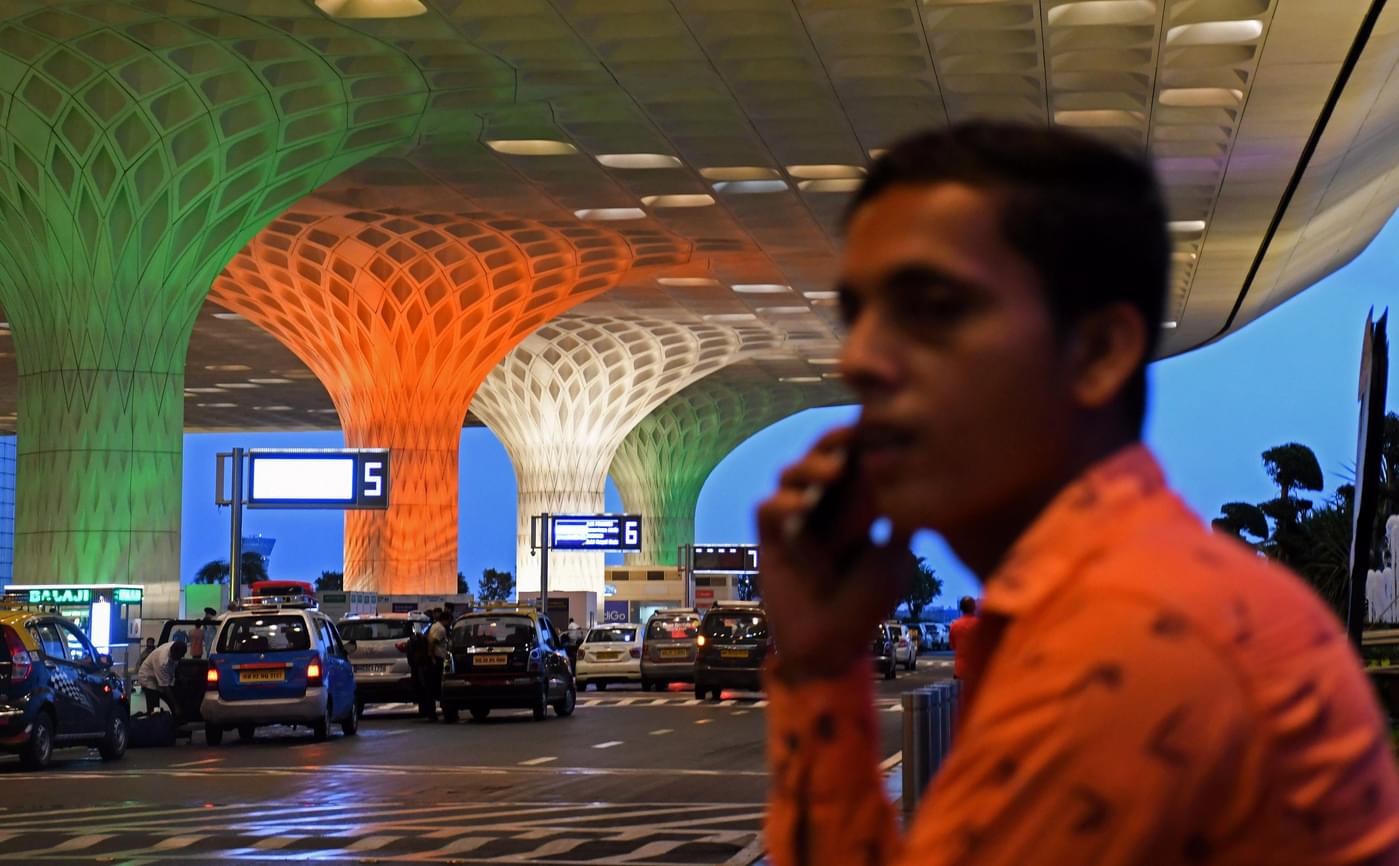
Credit: Ashish Vaishnav/SOPA Images via ZUMA Press WireChhatrapati Shivaji Maharaj International Airport in Mumbai lit up in the Indian tricolor flag to celebrate the country’s 75th year of independence.
Ahli and Chang did not respond to OCCRP’s requests for comment.
In an interview with a reporter from the Guardian, Chang said he knew nothing about any secret purchases of Adani stock. He did not say whether he had bought any, but asked why journalists were not interested in his other investments. “We are a simple business,” he said, before ending the interview.
Vinod Adani did not respond to requests for comment. Though the Adani Group has denied that he has a role in running the conglomerate, it admitted this March that he was part of its “promoter group” — meaning he had control over the affairs of the company and was meant to be informed of all holdings in Adani Group stock. An Adani Group representative told reporters that Vinod Adani’s involvement had been “duly disclosed,” adding that he is a “foreign national … residing abroad for the last three decades,” and “does not hold any managerial position in any Adani listed entities or their subsidiaries.”
‘Brazen Stock Manipulation’
The Adani Group’s rise has been staggering, growing from under $8 billion in market capitalization in September 2013 — the year before Modi became prime minister — to $260 billion last year.
The conglomerate is active in a dizzying array of fields, including transportation and logistics, natural gas distribution, coal trade and production, power generation and transmission, road construction, data centers, and real estate.
It has also won many of the state’s largest tenders, including 50-year contracts to operate or redevelop a number of India’s airports. Recently, it even took a controlling stake in one of the country’s last independent television stations.
But Adani’s rise has not been without controversy. Opposition politicians allege that the firm has received preferential treatment from the government to secure its lucrative state contracts. Analysts also describe its chairman, Gautam Adani, as benefiting from a cozy relationship with Modi. Adani has denied that Modi or his policies are responsible for his business empire’s success.
The conglomerate suffered a major setback at the end of January when the New York-based short seller, Hindenburg Research, issued its scathing report, claiming that the group had spent decades engaged in “brazen stock manipulation” and “accounting fraud.”
Gautam Adani, the headline read, was “pulling the largest con in corporate history.”
The central issue, the report claimed, was that the company was in violation of Indian securities law, which requires at least 25 percent of the stock of any publicly traded company to be available to the public for purchase.
Following the report’s publication, shares in the group’s companies plummeted. Gautam Adani lost more than $60 billion in just a few days, dropping from third-richest man in the world to 24th.
In response, the Adani Group issued denials and wrapped itself in the Indian flag. “This is not merely an unwarranted attack on any specific company,” the Group wrote in a note to stakeholders, “but a calculated attack on India, the independence, integrity, and quality of Indian institutions, and the growth story and ambition of India.”
Many investors appear to have bought this narrative, with shares of major Adani group companies recovering much of their losses.
Hitting a Wall
Meanwhile, in response to the Hindenburg report, India’s Supreme Court convened an expert committee to look into the allegations. The committee’s conclusions, published this May, revealed that the Adani Group had already been investigated by SEBI, the Indian financial regulator.
According to the committee, SEBI had suspected for years that “some of [the Adani Group’s] public shareholders are not truly public shareholders and they could be fronts for [Adani Group] promoters.” In 2020, it launched an investigation into 13 overseas entities holding Adani stock.
But the investigation “hit a wall,” the expert committee’s report reads, because SEBI investigators could not conclusively determine who was behind the money.
Attempting to do so would be a “journey without a destination,” the committee concluded, because multiple layers of opaque corporate ownership could be used to disguise the ultimate owners of the stock.
Documents obtained by reporters do, however, reveal the “destination” in two cases involving two of the 13 offshore entities: A pair of Mauritius-based investment funds.
From the outside these funds, called Emerging India Focus Fund (EIFF) and EM Resurgent Fund (EMRF), appear to be typical offshore investment vehicles, operated on behalf of a number of wealthy investors.
Documents obtained by reporters show that a large percentage of the money was placed into these funds by two foreign investors — Chang from Taiwan and Ahli from the United Arab Emirates — who used them to trade large amounts of shares in four Adani companies between 2013 and 2018.
At one point in March 2017, the value of the investments in Adani Group stock was $430 million.
The money followed a convoluted trail, making it exceedingly difficult to follow. It was channeled through four companies and a Bermuda-based investment fund called the Global Opportunities Fund (GOF).
🔗The Four CompaniesThe four companies used in the investments were Lingo Investment Ltd (BVI), owned by Chang; Gulf Arij Trading FZE (UAE), owned by Ahli; Mid East Ocean Trade (Mauritius), of which Ahli was the beneficial owner; and Gulf Asia Trade & Investment Ltd (BVI), of which Ahli was the “controlling person.”
According to documents obtained by reporters, these investments resulted in significant profits, netting hundreds of millions over the years as EIFF and EMRF repeatedly bought Adani stock low and sold it high.
Between them, at the peak of their investment in June 2016, the two funds held free-floating shares of four Adani Group companies ranging from 8 to nearly 14 percent: Adani Power, Adani Enterprises, Adani Ports, and Adani Transmissions.
Chang and Ahli’s connections to the Adani family have been widely reported over the years. The men were linked to the family in two separate government investigations into alleged wrongdoing by the Adani Group. Both cases were eventually dismissed.
The first case involved a 2007 investigation into an allegedly illegal diamond trading scheme by the Directorate of Revenue Intelligence (DRI), India’s premier investigative agency under the Ministry of Finance. A DRI report described Chang as the director of three Adani companies involved in the scheme, while Ahli represented a trading firm that was also involved. As part of the case, it was revealed that Chang shared a Singapore residential address with Vinod Adani, the low-profile older brother of the Adani Group’s chairman, Gautam Adani.
The second case was an alleged over-invoicing scam revealed in a separate 2014 DRI investigation. The agency claimed that Adani Group companies were illegally funneling money out of India by overpaying their own foreign subsidiary by as much as $1 billion for imported power generation equipment.
Here, too, Chang and Ahli’s names appeared. At separate times, the two men were directors of two companies later owned by Vinod Adani that handled the proceeds from the scheme, one in the UAE and one in Mauritius.
According to the Hindenburg report, Chang was also either a director or shareholder in a Singapore company that was listed as a “related party” in a disclosure by an Adani company.
Direct Instructions
Aside from these past links to the Adanis, there is evidence that Chang and Ahli’s trading in Adani stock was coordinated with the family.
According to a source familiar with the Adani Group’s business who cannot be named to ensure their safety, the fund managers in charge of Chang and Ahli’s investments in EIFF and EMRF received direct instructions on the investments from an Adani company.
The company that the source named, Excel Investment and Advisory Services Limited, is based in a secretive offshore zone in the United Arab Emirates where corporate records are not available.
However, documents obtained by reporters corroborate the source’s account:An agreement for Excel to provide advisory services to EIFF and EMRF was signed for Excel by Vinod Adani himself in 2011.
As recently as 2015, Excel was owned by a company called Assent Trade & Investment Pvt Ltd., which a 2016 email stated was ultimately owned by Vinod Adani and his wife.
Though current corporate records from Mauritius, where Assent is registered, do not show who owns the company, they do show that Vinod Adani is on its board of directors.
Invoices and transaction records show that the management companies of EIFF, EMRF, and the Bermuda-based GOF paid over $1.4 million in “advisory” fees to Excel between June 2012 and August 2014.
An internal email exchange suggests that, in connection with an upcoming audit, fund managers were concerned that they didn’t have sufficient paperwork to justify following Excel’s investment advice. In one of the emails, a manager instructs several employees to produce records that would justify the reasoning behind the investments. In another, a manager makes a request to obtain a report from Excel which should recommend investing in “more than the number of securities into which the fund has [actually] invested so that it can be demonstrated that the [investment manager] used their discretion to make the selection of investments.”
‘Siphoned-off money’
There is no evidence that Chang and Ahli’s money for their Adani Group investments came from the Adani family. The source of the funds is unknown.
But documents obtained by OCCRP show that Vinod Adani used one of the same Mauritius funds to make his own investments.
Reporters obtained a letter SEBI, the Indian regulator, received from the DRI in 2014, in which the DRI said it had evidence that money from the alleged over-invoicing scheme it were investigating had been sent to Mauritius.
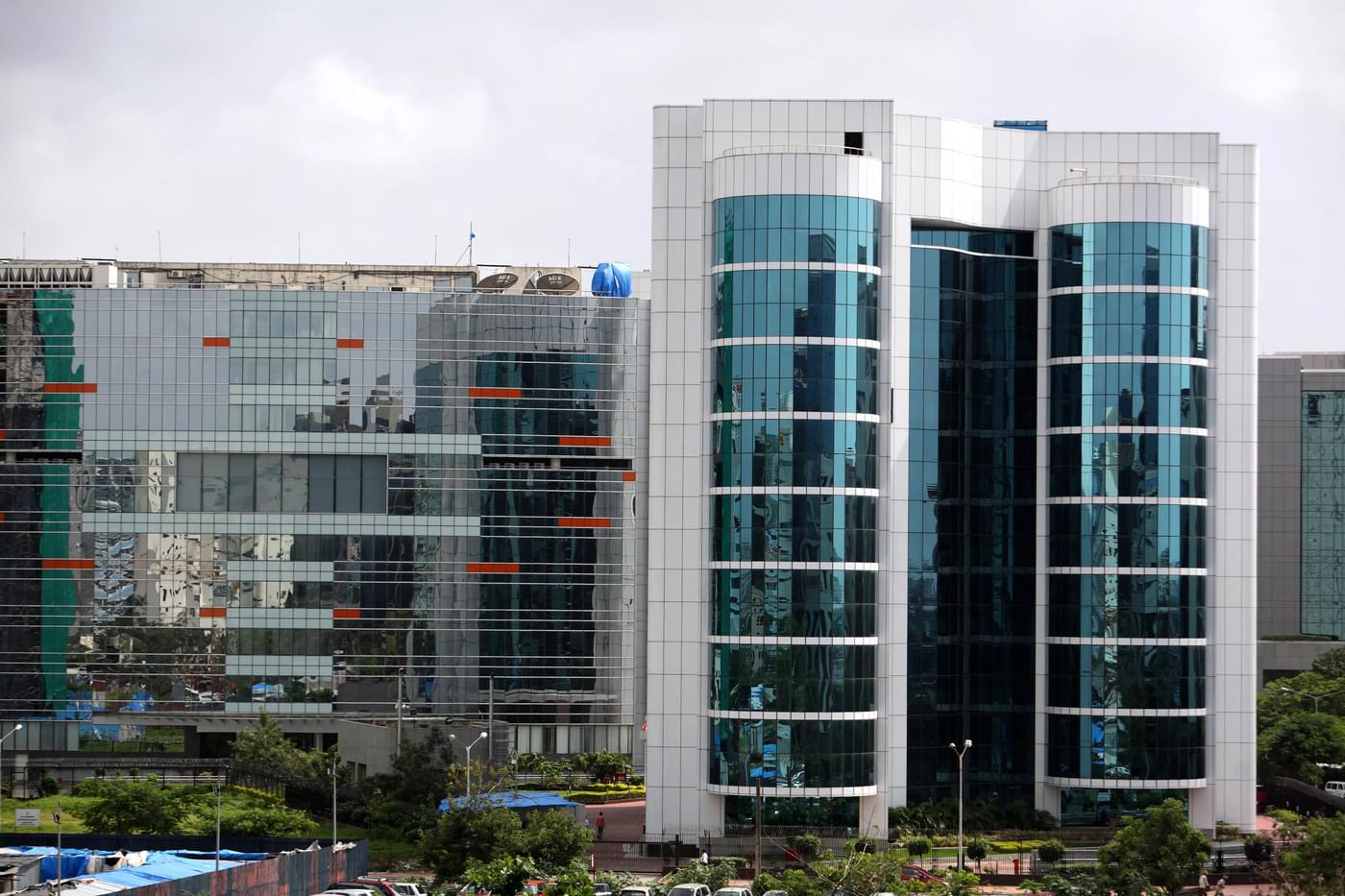
Credit: Dinodia Photos RMThe Securities and Exchange Board (SEBI) building in Mumbai.
“There are indications that a part of the siphoned-off money may have found its way to stock markets in India as investment and disinvestment in the Adani Group,” wrote Najib Shah, the DRI’s director general at the time, in the letter.
According to the DRI case, money from the alleged scheme was sent to an Emirati company called Electrogen Infra FZE. This company then forwarded the resulting proceeds of about $1 billion to a Mauritius-based holding company ultimately owned by Vinod Adani that had a similar name, Electrogen Infra Holding Pvt. Ltd.
Reporters were able to trace the onward flow of over $100 million of these funds.
The Mauritius company loaned the money to another Vinod Adani company, Assent Trade & Investment Pvt Ltd, “to invest in [the] Asian equity market.”
As the beneficial owner of both Electrogen Infra Holding and Assent, Vinod Adani signed the loan document as both the lender and as the borrower.
Finally, the money was placed into the GOF, the same intermediary used by Chang and Ahli, and then invested in both EIFF and Asia Vision Fund, another Mauritius-based investment vehicle.
SEBI did not respond to reporters’ requests for comment about the letter it received in 2014.
In the wake of the Hindenburg allegations this year, in addition to appointing its expert committee, India’s Supreme Court directed SEBI to investigate. Its report is due next month.
Fact-checking was provided by the OCCRP Fact-Checking Desk.
